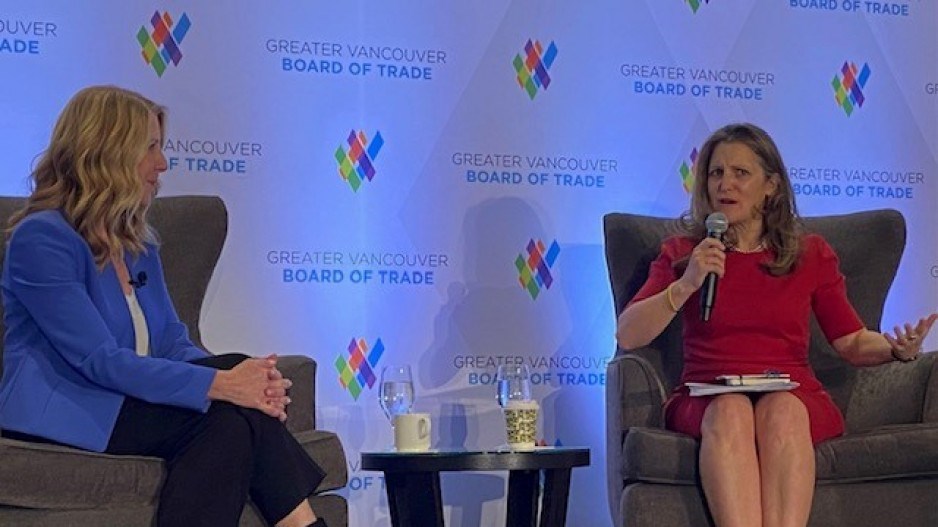Federal Finance Minister Chrystia Freeland brought down a federal budget Tuesday that continues the Trudeau government’s massive deficit spending and hits up corporations and high net worth Canadians for more tax revenue with higher capital gains tax rates.
Freeland handed down a budget bloated with more than $50 billion in new spending over five years and no way to pay for it, except for a hike in capital gains inclusion rates. The increased spending includes $8.5 billion for housing. It also earmarks $5 billion for a new loan guarantee program to help First Nations take equity stakes in major resource and energy projects.
The capital gains tax applies on profits from the sale of assets worth over $250,000. Freeland is hiking the inclusion rate on the capital gains tax from 50 per cent to 66 per cent.
Freeland’s budget forecasts a shortfall of $39.8 billion for 2024-2025.
The Montreal Economic Institute slammed the budget, saying it does nothing to address sa国际传媒’s productivity problem – a problem recently highlighted by the deputy governor of Bank of sa国际传媒.
“sa国际传媒’s productivity is in crisis and the best way to get it back up is to attract new investments,” said Renaud Brossard, vice-president of communications at MEI. “And few are those who have been able to lure investments and job creators with promises of higher taxes. With this budget, the Trudeau government is shooting us in the foot.”
The MEI also notes a bloated federal bureaucracy – one that has grown by 98,000 “new bureaucrats.”
“sa国际传媒 faces a trifecta of closely linked economic problems: stagnant productivity, a pattern of weak business investment, and declining global competitiveness,” said Jock Finlayson, chief economist for the Independent Contractors and Business Association (ICBA).
“Unfortunately, there is little in Budget 2024 that tackles these problems in a meaningful way. Expanding the size and cost of government won’t reverse the negative trends that are weighing on living standards and sapping sa国际传媒’s economic vitality.”
"While there were some positive measures, we hoped for a budget that would create the conditions for inflation and interest rates to moderate, while also spurring private sector investments to foster robust economic growth and high quality, family supporting jobs," said Bridgitte Anderson, president of the Greater Vancouver Board of Trade.
"Instead, we face $120 billion in deficits over the next three years combined with government policy that has thus far been unable to reverse our lagging productivity, flat growth, and a worsening cost of living crisis."
The one bit of good news in the federal for small business is only good news for businesses outside of sa国际传媒
The budget includes $2.5 billion for a carbon tax rebate for small business. But it only applies in provinces where the federal carbon tax backstop applies. Business in provinces that already had its own provincial carbon tax, like sa国际传媒, won’t qualify for the federal rebate.
The Canadian Association of Petroleum Producers (CAPP) welcomed the news in the budget that a Carbon Capture Investment Tax Credit is finally being delivered, three years after it was promised, and also welcomed the fact that oil and natural gas industry will be included in a new $5 billion National Indigenous Loan Guarantee Program.
“Given that Indigenous equity deals in sa国际传媒 predominantly involve oil and gas projects, this program opens avenues for Indigenous communities to access capital, fostering economic reconciliation and self-determination,” said CAPP CEO Lisa Baiton.
The program is intended to help First Nations take equity stakes in major resource projects, like pipelines.
“By committing this backstop of financial support to Indigenous equity participation, the Government of sa国际传媒 is taking a significant step towards meaningfully advancing economic reconciliation in this country," said Chief Sharleen Gale, who chairs the First Nations Major Projects Coalition.



